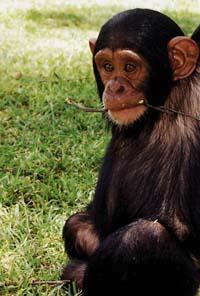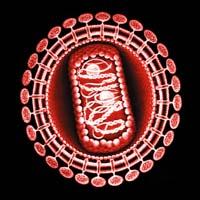In favor, now against
2007/09/01 Elhuyar Zientzia Iturria: Elhuyar aldizkaria

According to an article published in the scientific journal Science, the protein that in the past protected man from a virus has left AIDS defenseless.
It seems that four million years ago a retrovirus infected the chimpanzee and other nearby primates, but not the ancestors of man. At present this virus has disappeared, but in the DNA of the chimpanzee has remained a trace of the virus, specifically the chimpanzee has 130 copies of viruses in its DNA, while man has none.
Thus, the researchers concluded that the man's ancestor had his own protection against the virus. To demonstrate this, they took the genes inherited by the chimpanzee retrovirus from DNA and joined them with a mouse retrovirus. This regenerated the retrovirus 4 million years ago. Subsequently, retrovirus was introduced into a culture of human cells and demonstrated that it could not infect cells. In fact, a protein that contains human cells blocks the virus and prevents it from entering the cell.
This protein does not protect against the AIDS virus. Chimpanzees have mechanisms to combat the AIDS virus. Perhaps the passage of this infection has made chimpanzees stronger than humans from AIDS. At least, the protein that previously benefited humans no longer serves and, according to researchers, their "guilt" may now be unprotected.

Gai honi buruzko eduki gehiago
Elhuyarrek garatutako teknologia




